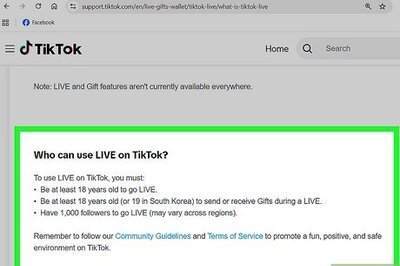
views
BHUBANESWAR: With the goal of making the country Hepatitis B-free by 2080, hepatologists and gastroenterologists have got into an intense exercise to formulate India-specific guidelines for prevention, management and treatment of the disease.The Indian National Association for Study of Liver’s (INASL) Task Force on Hepatitis B expects to finalise the guidelines in the next three years. The issue has assumed significance as Hep B has emerged a major public health problem and is spreading rapidly among the population.About 1 to 2 per cent of the population in India is afflicted with the disease that can lead to fatal conditions as cirrhosis or liver cancer. About 70 per cent of the afflicted populace will though remain dormant carriers but the rest would progress to infectious stages and transmit the virus.There are about eight genotypes of the virus and the treatment has to be specific to them. Accordingly, treatment and management guidelines have been formed for European, American and Asia Pacific conditions. But for Indian conditions, the guidelines formed in 2000 have proved insufficient, considering the prevalence of genotypes, behavioural practices both among the community and medical personnel, and advances in detection and treatment procedures.Tribal population in Orissa and Andaman and Nicobar Islands have astoundingly high prevalence rates. Advanced studies have found that Hepatitis B often goes undetected through conventional testing methods like surface antigen (HBsAg). It is found to be housed in the body in occult form and only detected by the more advanced anti-hepatitis B core antigen (antiHBc) screening. “The three-tier guideline system will not only target early detection and prompt treatment but also provide the first line of physicians and paramedics like nurses with the resources to identify patients and handle them properly,” Chairman of the INASL Task Force and head of Department of Hepatology, PGIMER, Chandigarh, Prof Y K Chawla said. The INASL today held its Task Force meeting here for formulation of the clinical practice guidelines taking into account epidemiology, prevention, management and treatment in special sub-groups. While pressing the Centre for universalisation of vaccines for the silent killer, the National liver body is also set to start a nationwide exercise in association with the Indian Council for Medical Research to study Hep B prevalence. A nodal officer, with a team of experts, would soon be appointed for the purpose, INASL Secretary and Head of Gastroenterology at SCBMCH, Cuttack, Prof S P Singh said. “Vaccination is the only answer to eradicate the disease. Several States, including Orissa, have included it in the routine immunisation programme. Once it is universalised across the country, we can look forward to complete eradication after the present generation passes by, which will take at least 60-70 years,” Prof Singh said.
















Comments
0 comment